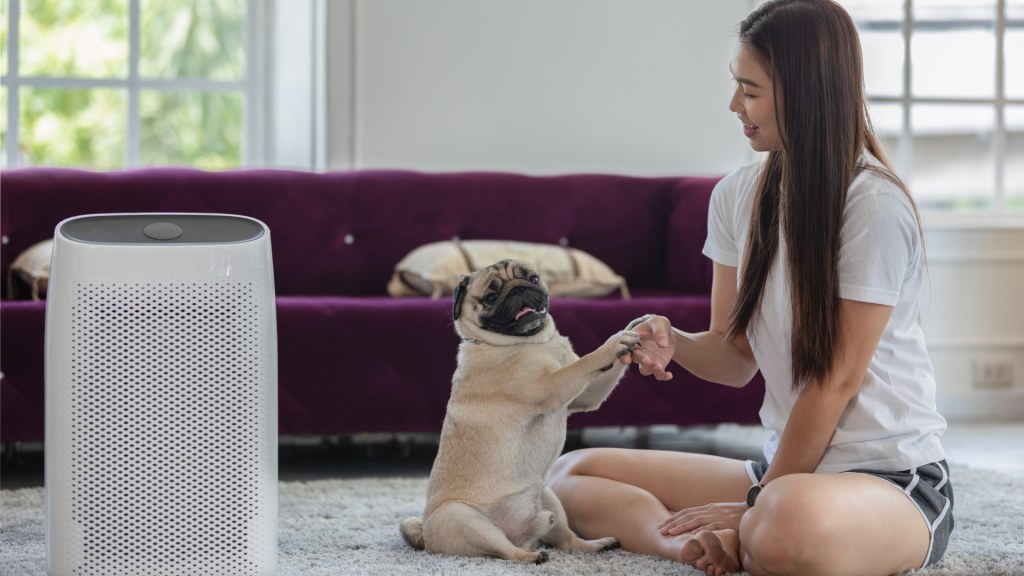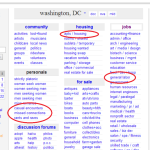Unlocking The Truth: Discover The Pet-Friendly Safety Of Air Ionizers!
Are Air Ionizers Safe for Pets?
Welcome, Pets Lovers! If you’re a pet owner who is concerned about the air quality in your home, you may have come across air ionizers as a solution. Air ionizers are devices that release negatively charged ions into the air, which are believed to remove pollutants and improve overall air quality. However, before investing in an air ionizer, it’s important to consider whether they are safe for your beloved pets. In this article, we will explore the topic of whether air ionizers are safe for pets and provide you with the information you need to make an informed decision for the well-being of your furry friends.
Table of Contents
What are Air Ionizers?
Who Can Benefit from Air Ionizers?
When to Use Air Ionizers?
Where to Place Air Ionizers?
Why Choose Air Ionizers?
How Do Air Ionizers Work?
Advantages and Disadvantages of Air Ionizers for Pets
Frequently Asked Questions (FAQ)
Conclusion
Final Remarks
1 Picture Gallery: Unlocking The Truth: Discover The Pet-Friendly Safety Of Air Ionizers!

What are Air Ionizers?

Image Source: futurecdn.net
Air ionizers are electronic devices that release negatively charged ions into the air. These ions attach themselves to particles such as dust, pollen, and pet dander, making them heavier and causing them to fall to the ground or adhere to surfaces. This process is believed to help remove pollutants from the air, resulting in cleaner and fresher indoor air quality.
Who Can Benefit from Air Ionizers?
Anyone who is concerned about the air quality in their home can benefit from using air ionizers. This includes pet owners who want to create a healthier environment for their pets by reducing allergens and pollutants in the air. Additionally, individuals with respiratory conditions or allergies may find relief from symptoms when using air ionizers.
When to Use Air Ionizers?
Air ionizers can be used at any time, but they are particularly beneficial in situations where the air quality is compromised. This can include times when there is an increase in dust, pollen, pet dander, or other allergens in the air. It’s important to note that air ionizers should not be used as a substitute for proper ventilation or cleaning practices.
Where to Place Air Ionizers?
When using air ionizers, it’s important to strategically place them in areas where your pets spend the most time. This can include living rooms, bedrooms, or any other areas where your pets have access. Avoid placing air ionizers directly next to your pets’ beds or food bowls, as they may find the noise or proximity uncomfortable.
Why Choose Air Ionizers?
Air ionizers are a popular choice for pet owners because they are believed to effectively remove allergens and pollutants from the air. By reducing these irritants, air ionizers can help alleviate allergies and respiratory symptoms in both pets and humans. Additionally, air ionizers are generally low-maintenance devices that require minimal upkeep.
How Do Air Ionizers Work?
Air ionizers work by emitting negatively charged ions into the air. These ions attach themselves to positively charged particles in the air, such as dust, pollen, and pet dander. Once attached, the particles become heavier and are either pulled down to the ground or adhere to surfaces, effectively removing them from the air. Some air ionizers also include filters to further enhance air purification.
Advantages and Disadvantages of Air Ionizers for Pets
Like any other product, air ionizers have both advantages and disadvantages when it comes to pets:
Advantages
1️⃣ Improved air quality: Air ionizers can help remove allergens and pollutants, providing cleaner and fresher air for your pets.
2️⃣ Allergy relief: By reducing allergens in the air, air ionizers can help alleviate allergy symptoms in both pets and humans.
3️⃣ Low maintenance: Air ionizers typically require minimal upkeep, making them a convenient option for pet owners.
Disadvantages
1️⃣ Ozone production: Some air ionizers can produce ozone, which can be harmful to pets when present in high concentrations. It’s important to choose an air ionizer that produces minimal ozone.
2️⃣ Noise: Air ionizers can produce a soft humming noise, which may be bothersome to some pets.
3️⃣ Placement limitations: Air ionizers should be strategically placed to avoid direct proximity to pets, as they may find the noise or airflow uncomfortable.
Frequently Asked Questions (FAQ)
1. Can air ionizers cause harm to my pets?
No, air ionizers are generally safe for pets when used correctly. However, it’s important to choose an air ionizer that produces minimal ozone and place it strategically to avoid discomfort for your pets.
2. Are air ionizers effective in removing pet odors?
Air ionizers can help reduce pet odors by removing airborne particles that contribute to the smell. However, they may not eliminate all odors completely.
3. Can air ionizers replace regular cleaning and ventilation?
No, air ionizers should not replace regular cleaning practices and proper ventilation. They should be used as a supplement to these practices to further improve indoor air quality.
4. Can air ionizers help with pet allergies?
Air ionizers can help alleviate pet allergy symptoms by reducing allergens in the air. However, it’s important to note that individual sensitivities may vary, and additional measures may be necessary to manage allergies effectively.
5. Are there any precautions I should take when using air ionizers around my pets?
When using air ionizers, it’s important to choose a model that is pet-friendly and produces minimal ozone. Additionally, avoid placing air ionizers too close to your pets’ sleeping or eating areas to prevent any discomfort.
Conclusion
After considering the advantages and disadvantages of air ionizers for pets, it is clear that they can be a valuable tool in improving indoor air quality and reducing allergens. However, it’s important to choose a pet-friendly air ionizer that produces minimal ozone and strategically place it to avoid any discomfort for your pets. Additionally, it’s crucial to remember that air ionizers should not replace regular cleaning practices and proper ventilation. By taking these precautions, you can create a healthier and more comfortable environment for both you and your furry companions.
Final Remarks
In conclusion, air ionizers can be safe for pets as long as they are used correctly and with consideration for the specific needs of your pets. It’s always recommended to consult with your veterinarian before introducing any new products into your pet’s environment. Remember, the well-being of your pets should always be a top priority. By making informed decisions and taking necessary precautions, you can provide your pets with a clean and healthy living space.
This post topic: Pets


